Today the Bank of England made the decision to raise interest rates for the fourth consecutive time.
The rise to 1% is the highest level in 13 years.
Susannah Streeter, senior investment and markets analyst, Hargreaves Lansdown, comments:
“Withdrawing the pacifier of cheap money was never going to be easy, particularly with the economy at crawling place but the Bank of England has clearly judged that leaving rates low will do more harm than good even though it is set to tip the UK into a downturn.
The last time rates were at 1% was in February 2009 as the repercussions of the global financial crisis were taking hold, and Lily Allen was at number 1 in the UK music charts with her aptly named track The Fear.
Right now that mood music is back with policymakers at the Bank of England clearly sharing fears that unless action is taken now to lower demand in the economy, inflation will spiral out of control, which could cause even more pain for the economy.
Already it’s predicting inflation will shoot up to a frightening 10% with a rise in the energy price cap set to cause more financial pain in the Autumn.
With more interest rate rises expected alongside elevated commodity prices that are set to squeeze consumer and company spending power, this pincer movement is expected to lead to a contraction in economic output by 0.25% in 2023.
The stage is set for a pretty bleak winter of discontent with the economy heading into reverse and little end in sight to rising prices given the ongoing toll the war in Ukraine is having on commodity markets.
The oil price has marched up even higher today, with Brent settling above $110 dollars a barrel after the EU moved to ban most Russian crude imports.
The Bank is still taking a softly-softly approach when it comes to rolling back its huge bond buying stimulus programme to avoid tantrums in the bond markets in the form of spiking yields which would make borrowing much more expensive.
It’s kicked the roll back of its quantitative easing programme into the long grass, with only an update planned at the August meeting on whether to start sales.
For now in the words of Harry Styles currently sitting at no.1 in the charts – it’s keeping its stimulus policy ‘As it was’.”
Tom Bill, head of UK residential research at Knight Frank, comments:
“The base rate increase will not by itself have an impact on house prices but will contribute to a slowdown that appears to be underway.
Growth will calm down as the cost-of-living squeeze gradually takes it toll on demand and mortgage lenders continue to pull their best products from the market.
The other key consideration is supply, which has had the single biggest impact on house prices this year.
As it rises, the double-digit house price growth that has taken most people by surprise during the pandemic will return to earth. We forecast UK prices will grow by 5% this year.”
Simon Gammon, Managing Partner at Knight Frank Finance, comments:
“Today’s rise in the base rate to 1% ensures mortgage rates will continue to rise during the weeks ahead.
Three of the nine members of the Monetary Policy Committee voted for a 50-basis point hike and markets imply the rate will climb to 2.5% by mid-2023, so the upwards trajectory of mortgage rates is going to be steady and sustained.
Lenders are repricing their product ranges on a weekly basis, which gives borrowers very little time to act.
If you see a rate and you think it’s attractive, it’s better to act immediately. Borrowers that wait a day or two may have to endure a sizable rise in interest payments each month, which is particularly difficult during a deeply embedded squeeze in living standards.”
Commenting on rising UK interest rates and a softening of hawkish language, Victor Lam, Fiduciary Investment Specialist at ZEDRA, said:
“The Bank of England marked its 25th anniversary of independence by raising rates by 25 basis points for a fourth time in a row since December to 1.0%, a level not seen since the financial crisis in 2008.
The rate increase was widely expected, but unlike the March meeting, the vote was 6-3, with the minority wanting to raise rates by 50 basis points to 1.25%.
Despite being one of the more hawkish central banks at the start of the year, last month Governor Andrew Bailey noted they are walking a “very tight line” between tackling inflation and avoiding recession.
They softened their language slightly on future rate increases as there are signs of a slowdown with consumer confidence close to record lows and retail sales falling two months in a row.
Today’s announcement saw them remove the word “modest” to describe future rates increases, hardening their stance.
Inflation is potentially set to hit double-digits later this year for the first time since the 1980s and the labour market remains tight, so future increases are still expected despite the risk of recession.
Sterling is at a 21-month low versus the dollar due to worries on the economic outlook in the UK and fell below $1.25 following the announcement.”
Giles Coghlan, Chief Analyst, HYCM, comments:
“The Bank of England (BoE) hiked by 25 bps as expected, but Haskell, Mann, & Saunders voted for a 50 bps hike.
Why?
With inflation sitting at a 30-year high of 7%, today’s dovish hike is a sign that policymakers are now entering increasingly choppy waters when it comes controlling the inflation narrative.
Generally speaking, the BoE does not want to see inflation entering strongly into wages. Once it does, the issue becomes systemic and generates a force of its own, which becomes exceedingly difficult to control.
However, higher rates will inevitably place pressures on growth, as well as increasing cost burdens on U.K. households – the latter being an issue that many consumers are already having to grapple with.
Given that energy prices are continuing to rise against a backdrop of continued geopolitical unrest, this fourth consecutive rate increase from the BoE presents the unique difficulties at hand for the Monetary Policy Committee.
For now, the markets will be focused on the medium-term growth outlook, which has been revised down lower, with the BoE taking the view that GDP will slow sharply due to the global energy prices rises and tradable goods prices.
In summary the meeting was a ‘stagflationary’ acknowledgement.
Lower growth, with inflation now expected to peak at a staggering 10% this year, may well mean that the central bank could be set to pause its hiking cycle around the summer, with more rate cuts set for 2023.
Looking ahead, this could be a negative for the GBP.”
Comment on rising UK interest rates and the threat of inflation, Dan Boardman-Weston, CEO & CIO at BRI Wealth Management, said:
“The Bank of England has increased interest rates by 0.25% to 1%.
Higher interest rates were expected by the market as inflation continues to hit multi-decade highs and the Bank feels it needs to show that it’s serious about the threat of inflation.
Interestingly, the Bank now thinks that inflation will peak at over 10% in the latter part of 2022, the highest level since 1982.
The current conflict in Ukraine and the continued lockdowns in China are going to put further upward pressure on the rate of inflation and this is expected to be one of many interest rate increases during 2022.
The Bank has a difficult balancing act though as the current cost of living crisis combined with higher interest rates and higher taxes means that the growth outlook for the UK is gloomier than it has been since the dark days of Covid, and we’re likely to see a material slowdown in economic activity throughout 2022.
The Bank will need to tread carefully and not raise rates too quickly or too aggressively otherwise they risk tipping the economy into a deeper recession.
The inflation continues to be largely supply driven and interest rate increases are not going to assist with these contributory factors to inflation.
2022 will likely be a pivotal year for monetary policy.
The risks of a misstep and a recession have increased significantly.”
Tomer Aboody, director of property lender MT Finance, says:
“This rate rise was fully anticipated by the markets due to the need to manage soaring inflation.
It will help cap some excess spending by consumers, although many have been cutting back where they can in the face of rising bills and the wider cost of living.
Mortgage pricing is edging upwards, but many lenders up until this point have not passed on previous rate rises in full due to a highly competitive market.
If they want to attract business, they need to absorb some of the rate increases; the question is, how long will they be prepared to do this for.”
Alex Lyle, director of Richmond estate agency Antony Roberts, says:
“This latest increase in interest rates is unlikely to have a major impact on buyers, particularly not in our part of London.
Continued lack of stock is more of an issue.
At present, buyers are anxious, not so much about rising house prices or mortgage rates, but limited choice.
Those buyers who need a mortgage appreciate that while rates are rising, they are still incredibly low.
Having said that, these now regular increases to interest rates, the almost-weekly adjustment to mortgage rates and rise in the cost of living, will inevitably have an impact on the housing market sooner rather than later.”
Jeremy Leaf, north London estate agent and a former RICS residential chairman, says:
“This rate rise has seemed almost inevitable for some time now, bearing in mind increases in the cost of living.
For that reason, most of the people we are in touch with at the sharp end have almost built in the uplift into their calculations when making decisions about buying and selling property.
Certainly, the overwhelming majority of existing homeowners are benefiting from fixed-rate mortgages and are not under immediate pressure to move products so would not be immediately affected.
Of course, once again it’s first-time buyers who seem to be clobbered on all sides by rising rents, higher interest rates and more stringent lending criteria.
Yet while they often come off worse, they are so vital to the successful operation of the housing market, not only at the bottom of the ladder but connected in chains right to the top.”
David Johnson, managing director of independent property consultants INHOUS, says:
“In the mainstream housing market, there is no doubt that the latest in this series of interest rate hikes is going to impact homeowners.
Many of the people we speak to feel that a recession is inevitable.
In London, the interest rate hikes will impact those buyers who purchased in the past five or six years and paid a premium to do so.
Between the £2 million to £8m price bracket, the market was very competitive, with the majority of buyers needing finance and paying strong prices to secure their homes.
We could see these homeowners struggle at a later stage if there are several more interest rate hikes, but this won’t happen imminently.
It also depends on what finance they took out; if they opted for a medium or longer-term fixed-rate mortgage, they may be ok but if they opted for a variable rate, it could be a nervous period for them.
As far as high-net-worth and ultra-high-net-worth buyers are concerned, we don’t expect to see much of an impact.
The majority of our clients are cash buyers or have the cash reserves but choose to take out finance.
Interest rate hikes are not even a subject of discussion for these buyers. With buyers still outnumbering sellers in London, property values should remain strong.”
Mark Harris, chief executive of mortgage broker SPF Private Clients, says:
“With the markets already pricing in this rate rise, it comes as no surprise.
Lenders have increased mortgage rates in recent weeks with little or no notice, making it difficult for borrowers as any hesitation may mean missing out on the best deals.
The Bank of England has to carefully balance the need to control inflation with the wider economic challenges posed by rising interest rates.
Even with this latest rise, we remain in a low interest rate cycle and expect that to be the case indefinitely.
For every £100,000 on a variable-rate mortgage, a quarter point rate rise adds £250 a year.
Those borrowers on variable-rate deals may want to consider taking out a fixed-rate mortgage – while these are getting more expensive, some of the longer-term fixes are particularly competitively priced.
However, borrowers must be careful not to fix for longer than they are sure about or may incur a hefty early repayment charge to get out of the mortgage early.
The purchase market is still active although the housing market has settled down a little and the froth has gone.
Activity in the remortgage market is brisk with some borrowers considering paying the penalty to leave their existing deal early in order to secure another product before prices rise further.
This can be worth doing but it is important to ensure any savings you make to your mortgage payments outweigh the costs involved.
Rates can be booked up to six months before they are required and we are getting a lot of interest from motivated borrowers in doing this.”
Commenting on the market reaction to the latest BoE rate hike, Jesús Cabra Guisasola, Senior Associate – Global Capital Markets at Validus Risk Management, said:
“The BoE continues trying to curb historical inflation prints by hiking interest rates an extra 25bps for the fourth time in a row, bringing its key interest rate to 1.00% for the first time since the global financial crisis in 2008.
The vote came more hawkish than expected as three officials voted for a 50bps increase.
This is in contrast with the BoE’s last meeting when eight members of the MPC voted for a quarter point hike, but one member (Governor Jon Cunliffe) voted to keep rates on hold.
It looks like MPC members are now more concerned about the prospect for the British economy which is signalling a clear path to stagnation.
The latest forecasts are showing that the U.K. will suffer a 1% contraction by the end of the fourth quarter this year, with inflation continuing increase, reaching 10% in October.
This is putting the BoE in uncharted territory with a narrow path where they will need to carefully balance their next moves.
GBPUSD continues trading lower and below the $1.25 mark. We are witnessing a clear depreciation of sterling during 2022 which is placing it as the third-worst performing major currency.”
CEO of Octane Capital, Jonathan Samuels, commented:
“A fourth consecutive base rate increase was expected, but nonetheless, it will cause concern for those not on a fixed rate, who will now see their monthly mortgage costs climb that little bit higher.
With the cost of living also increasing, we can expect buyers currently entering the market to do so in a far more hesitant fashion than they have done previously.
As a result, not only will mortgage approval levels continue to cool, but so too will the sums they are committing to borrowing and the end product of this will be a reduction in the current rate of house price growth being seen across the UK market.”
Director of Henry Dannell, Geoff Garrett, commented:
“We’ve already seen many lenders acting with a far greater degree of caution in anticipation of another base rate increase and for the nation’s homebuyers, this will now mean fewer available product options at higher rates.
While this latest increase is unlikely to extinguish our appetite for homeownership completely, it will certainly dampen the heightened levels of market activity that have been fuelling the pandemic house price boom.
Those considering a purchase would be best advised to act now as the mortgage rates currently available to them are likely to climb as the year plays out.”
Adrian Anderson, Director of property finance specialists, Anderson Harris, commented:
“With the Bank of England raising interest rates once again today to 1%, the highest level in 13 years, this is an attempt to tackle the crippling cost of living crisis gripping the UK.
Like many banks around the world the Bank of England is attempting to slow down inflation which reached a 30 year high of 7% in March.
With inflation so high many City economists are anticipating more increases.
Three of the Bank of England Monetary Policy Committee members wanted a larger increase to 1.25% however, Governor Andrew Bailey recently noted that the Bank of England is walking a “narrow path” between growth and inflation.
There are concerns that the soaring cost of living and higher borrowing costs due to the high inflation will damage consumer spending which may force the banks to reconsider future rate rises.
Today’s Bank of England rate rise will not be welcomed by borrowers on variable rate mortgages as the cost of their mortgage will increase.
The good news is that 74% of UK homeowners have a fixed rate deal.
These borrowers will not be affected today however it’s likely that the fixed rates available in the future will be more expensive hence anybody with a fixed rate which is ending shortly should shop around as soon as possible.”




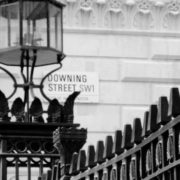
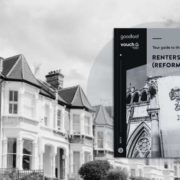

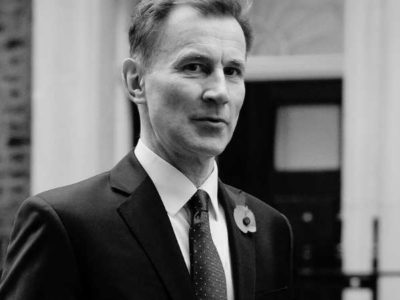
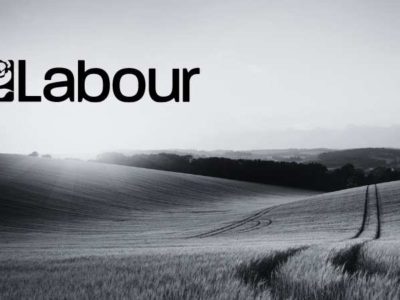

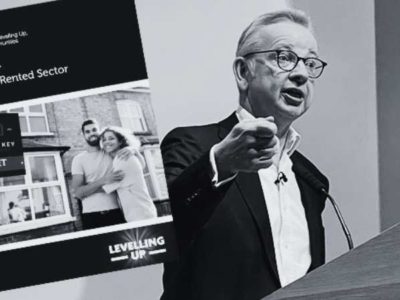


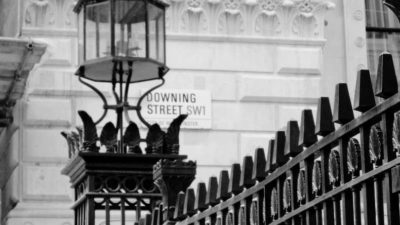
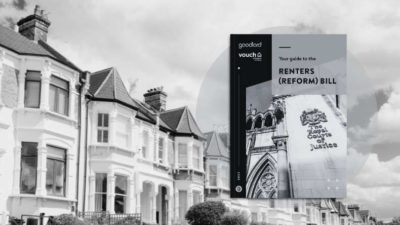






Comments